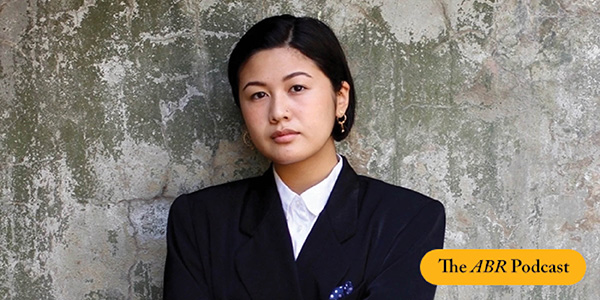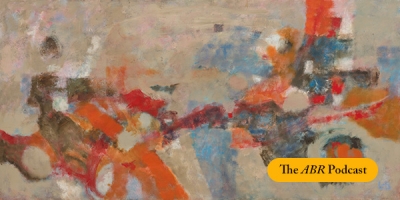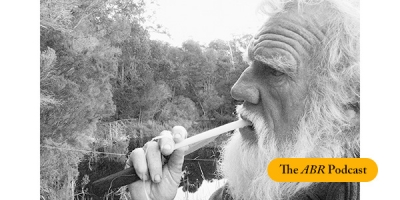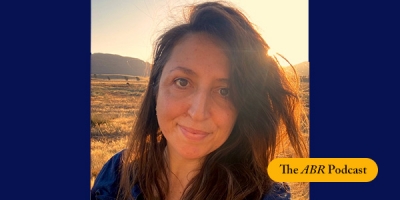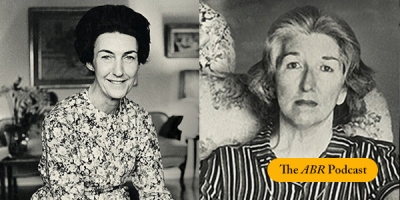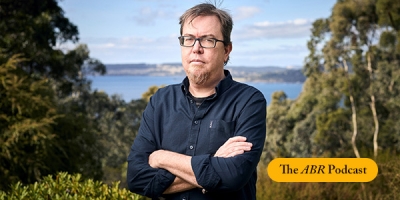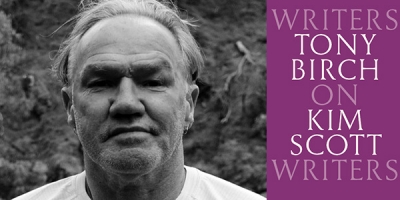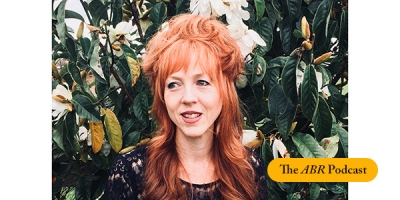Podcast
The ABR Podcast
Released every Thursday, the ABR podcast features our finest reviews, poetry, fiction, interviews, and commentary.
Subscribe via Apple Podcasts, Stitcher, Google, or Spotify, or search for ‘The ABR Podcast’ on your favourite podcast app.
Thought’s tempo
Essays that imagine otherwise
This week, on The ABR Podcast, Mindy Gill reviews Dead and Alive, Zadie Smith’s latest essay collection. For Gill, Smith’s essays ‘have an uncanny habit of arriving precisely when the culture shifts’. Dead and Alive ranges across technology and digital surveillance, authorship and literature, and the erosion of public space, among other urgent concerns. Considered together, ‘these essays reveal continuities otherwise invisible when read in isolation: a set of preoccupations that cut across ostensibly tangential subjects’.
Mindy Gill was ABR’s 2021 Rising Star. A poet, critic, and former editor-in-chief of Peril magazine, Gill is an Associate Lecturer of Creative Writing at Queensland University of Technology. She has won the Queensland Premier’s Young Publishers and Writers Award and the Tom Collins Poetry Prize. Her collection of poems, August Burns the Sky, was shortlisted for the Thomas Shapcott Poetry Prize. Here is Mindy Gill with ‘Thought’s tempo: Essays that imagine otherwise’, published in the January-February issue of ABR.’
Recent episodes:
In this week’s ABR Podcast, Timothy J. Lynch considers whether the United States is on the path to a second civil war, as forecast by Nick Bryant in The Forever War: America’s unending conflict with itself. In his book, Bryant, a former BBC Washington correspondent, argues that hate and paranoia form a central core of the American experience. Timothy J. Lynch is Professor of American politics at the University of Melbourne. Here is Timothy J. Lynch with ‘Death by suicide? Division as a default setting in America’, published in the July issue of ABR.
... (read more)On this week’s ABR Podcast, Nick Hordern tells the story of Mitty Lee-Brown, the Australian artist who went into self-imposed exile in 1968 to Ceylon, which in 1972 became Sri Lanka. Nick Hordern is a former diplomat and journalist, and the author of several books, including World War Noir: Sydney’s Unpatriotic War. Listen to Nick Hordern’s ‘Mitty Lee-Brown: artist in exile: From a boarding house in Woollahra to Sri Lanka’, published in the July issue of ABR.
... (read more)In this week’s ABR Podcast, Seumas Spark reviews Black Duck: A year at Yumburra by Bruce Pascoe with Lyn Harwood. Spark writes: ‘Black Duck is two things: a record of a year in the life of the farm, and a collection of musings on life and Country’. Seumas Spark is an historian at Monash University. Listen to Spark’s ‘Pascoe’s vision: Musings on life and Country’, published in the June issue of ABR.
... (read more)In this week’s ABR Podcast, we feature the third-place winner in this year’s Calibre Essay Prize, Nicole Hasham’s ‘Bloodstone: The day they blew up Mount Tom Price’. In preparation for the essay, Walkley Award-winning journalist Nicole Hasham travelled to the site of Wakathuni, the Pilbara mountain also known as Tom Price that was blown up in 1974 to mine iron ore. Listen to Nicole Hasham’s ‘Bloodstone: The day they blew up Mount Tom Price’, published in the July issue of ABR.
... (read more)In this week’s ABR Podcast, Peter Rose reviews Hazzard and Harrower: The letters, edited by Brigitta Olubas and Susan Wyndham. The correspondence between writers Shirley Hazzard and Elizabeth Harrower ran from 1966 to 2008 and, in its unedited form, amounted to 400,000 words. Editors Susan Wyndham Brigitta Olubas have trimmed it down: ‘For the time being,’ says Peter Rose, ‘we must make do with this entertaining and not insubstantial entrée.’ Listen to Peter Rose’s ‘Flies in the Nirvana’: An illuminating and sisterly correspondence’, published in the June issue of ABR.
... (read more)In this week’s ABR Podcast, Frank Moorhouse biographer Matthew Lamb tells of his subject’s battle to defend Australian authors and the founding of Copyright Agency in 1974. Listen to Matthew Lamb with ‘Copyright and its discontents: Frank Moorhouse’s battle to defend authors’, published in the June issue of ABR.
... (read more)Last month ABR announced the winner, runner-up and third-place recipient of the 2024 Calibre Essay Prize. In this week’s podcast we are delighted to present the 2024 Calibre runner-up, ‘Hold Your Nerve’, by Melbourne writer Natasha Sholl. Natasha Sholl is a writer and lapsed lawyer. Her work has appeared in publications including The Guardian, The Age, Good Weekend and Mamamia. Her debut book, Found, Wanting, was published by Ultimo Press in 2022. Listen to Natasha Sholl with ‘Hold Your Nerve’, published in the June issue of ABR.
... (read more)In this week’s ABR Podcast, Tony Hughes d’Aeth reviews On Kim Scott: Writers on writers by Tony Birch. The book is the latest instalment in Black Inc.’s ‘Writers on Writers’ series. Tony Hughes-d’Aeth is Professor in English and Cultural Studies at the University of Western Australia and the author of several books including the recently published Netflicks: Conceptual Television in the Streaming Era. Listen to Hughes-d’Aeth with ‘Archival poetics: An inflexion point in Indigenous writing’, published in the May issue of ABR.
... (read more)With the publication of the May issue, ABR was delighted to announce the winner of the 2024 Calibre Essay Prize. Tracey Slaughter – from Aotearoa New Zealand – has become the first overseas writer to claim the Calibre Prize with her essay ‘why your hair is long & your stories short’. We are thrilled Tracey Slaughter could join the ABR Podcast to read her winning essay. Listen to Tracey Slaughter with ‘why your hair is long & your stories short’, published in the May issue of ABR.
... (read more)In this week’s ABR Podcast, Scott Stephens reviews a book by Anne Manne: Crimes of the Crimes of the Cross: The Anglican paedophile network of Newcastle, its protectors and the man who fought for justice. Why is narcissism a central theme for a book about child sexual abuse? Stephens writes: ‘without the capacity or willingness to be attentive to the humanity of another person’, unfathomable cruelty becomes possible. Scott Stephens is the ABC’s Religion & Ethics online editor and the co-host, with Waleed Aly, of The Minefield on ABC Radio National. Listen to Scott Stephens’s ‘Soul blindness: Clerical narcissism and unfathomable cruelty’, published in the May issue of ABR.
... (read more)
